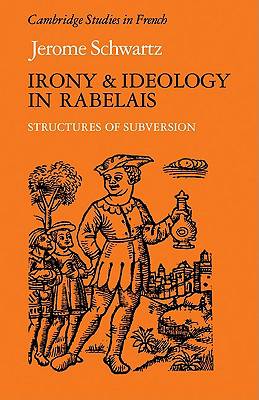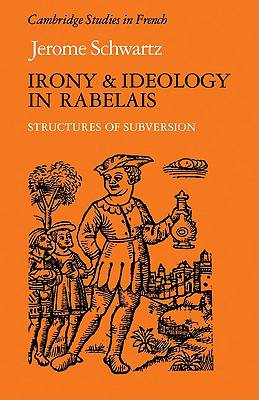
- Afhalen na 1 uur in een winkel met voorraad
- Gratis thuislevering in België vanaf € 30
- Ruim aanbod met 7 miljoen producten
- Afhalen na 1 uur in een winkel met voorraad
- Gratis thuislevering in België vanaf € 30
- Ruim aanbod met 7 miljoen producten
Zoeken
Omschrijving
Over the past two decades since the appearance in the West of Mikhail Bakhtin's study of Rabelais and popular culture, Rabelais's work has been a focus of debate in contemporary literary and cultural criticism. The subjects under discussion include questions of fixed authorial meaning and intention versus open and changing readings, and the competing claims of literary history as traditionally practised versus dialectical criticism, according to which criticism itself is not outside ideology and history. Jerome Schwartz's book attempts to straddle both tendencies. Schwartz reads the four authentic books of Rabelais's Gargantua and Pantagruel as polyvalent texts in which ironic, parodic and satiric discourses continually intersect to prevent the univocal closure of ideological meaning. His book is about the way in which the Rabelaisian text functions as an interdiscursive play of elements that both encode meanings and subvert the reader's attempts at coherent interpretation. In close textual analyses of major episodes, examination in context of semantic, syntactic and narrative elements, including quotations and references that undermine the apparent ideological objective at the surface of the text, Schwartz reveals 'loopholes' in the text, spaces of social and political conflict and deviance that are woven into its humanist, evangelical structures.
Specificaties
Betrokkenen
- Auteur(s):
- Uitgeverij:
Inhoud
- Aantal bladzijden:
- 260
- Taal:
- Engels
- Reeks:
- Reeksnummer:
- nr. 27
Eigenschappen
- Productcode (EAN):
- 9780521112505
- Verschijningsdatum:
- 4/06/2009
- Uitvoering:
- Paperback
- Formaat:
- Trade paperback (VS)
- Afmetingen:
- 140 mm x 216 mm
- Gewicht:
- 331 g

Alleen bij Standaard Boekhandel
+ 121 punten op je klantenkaart van Standaard Boekhandel
Beoordelingen
We publiceren alleen reviews die voldoen aan de voorwaarden voor reviews. Bekijk onze voorwaarden voor reviews.











